How to Spot a Fake ID
How to Spot a Fake ID
When you focus very hard on a job, you can always develop very special and strange abilities from it. A carpenter might be able to estimate the length of anything just by looking at it, an architect might be able to quickly draw very accurate drawings from memory, and so on.
This post comes from one of those specific abilities, and we'll tell the story of a bouncer who lived in Boston and worked every day at a busy bar. At work, he got really good at spotting fake IDs.
This isn't a skill that people usually think of. Even bars often don't pay much attention to it. Most bars only do a fairly cursory check of a fake ID: bend the ID to make sure it's made of the right material, try to peel the edges, check the photo against the cardholder, and maybe ask for the person's address. If they can, the bar might also try to scan the ID code to see if the information matches.
These methods are useful for spotting most bad fake IDs, but they are useless for spotting a good fake ID.
A good fake ID will use the same card material as a real ID, its laminate will not peel off, the photo on the card is a photo taken of the person, its data is the actual data entered by the cardholder himself, and the ID will be scannable. It will show the exact same ID data.
To spot a good fake ID, you have to get smarter. Here's how:
1. Check the card edges
Touch and feel the edge of your real driver's license. You'll notice that it's smooth and has rounded corners. That's because your ID was laser cut.
A fake ID may have rough edges or only have little threads. These are signs of hand or machine cutting, and these are fake.
2. Check the laminate
Lamination on hard plastic is hard to get right. Fake IDs have moved on from the days of glued-down laminates, but that doesn't mean the laminate is perfect.
Other than a slight sheen, the laminate is barely noticeable on your real ID. It ends at the end of the card, but if you look closely at the edge of the card, you'll see two or three layers: the laminate, the card stock, and possibly another layer of laminate.
On a fake ID, however, the laminate is usually not adhered well. There are wrinkles or dirt under the laminate, especially near the edges, and it usually sticks out a bit, which you can see if you shine a flashlight directly at the edge.
But even when laminating correctly, it is difficult for fake ID manufacturers to get the same type of laminating as genuine ID manufacturers. They use substitutes, but these substitutes are usually too reflective. You can see this extreme reflectivity on fake IDs.
3. Check for raised and depressed fonts
On genuine IDs, certain parts have raised and depressed fonts. Let's use a genuine Massachusetts ID as an example, my date of birth in the lower right corner is raised, while the cardholder's initials and year of birth below the photo are depressed.
Doing this is difficult and expensive. Cheap ID manufacturers may try to cheat it, especially with indented letters, by making this step as easy as possible so that the letters align with the rest of the card stock. You can feel it if you touch it carefully.
Creating colored raised fonts is especially difficult. Fake ID manufacturers have a hard time coloring the letters completely, leaving inferior spots on the numbers.
4. Check for holograms
Holograms used to be a top security feature on IDs. Unfortunately, this is no longer the case, and most good fake ID manufacturers today have no problem with holograms.
However, they still pay a price in terms of hologram quality. For example, on a Massachusetts driver's license, there is a hologram of a bird. It has several features that are difficult for fake ID manufacturers to replicate: a small eye, a small word "Massachusetts," and my initials and year of birth embedded in it.
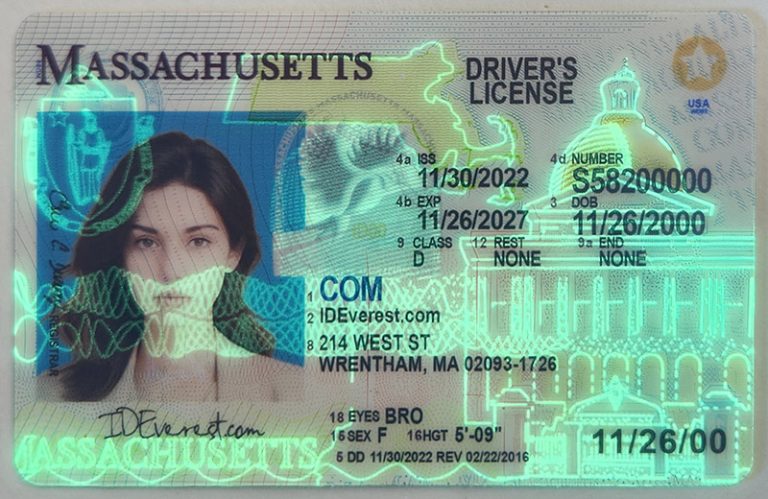
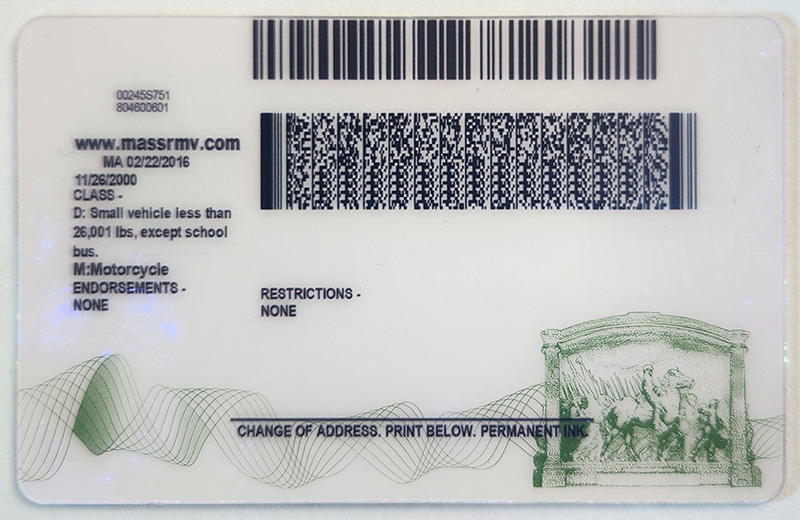
Fake ID manufacturers are rarely able to directly replicate a hologram of this quality. Therefore, some bad manufacturers will try to cheat. They may just print the hologram directly onto the card stock and hope that people won't realize it. Or, they may just ignore the details of the eye.
Regardless, if you know what holograms look like, especially the way they are raised and separated from the card itself, you will easily spot them.
5. Check the back
Currently, fake ID manufacturers are in the business of producing fake IDs that are attractive enough to teenagers under 21 to fool overworked bar bouncers.
Typically, when they spot an ID, they will check the front of the ID very carefully and then briefly look at the back.
Fake ID manufacturers know this, so they often ignore a lot of details on the letters on the back. Therefore, some low-quality fake IDs may have letters on the back that are misaligned, spotty, or connected.
6. Check the laser drill
Another very common security feature is laser drilling. It's easier to see if you look at the back of the ID. You'll notice some small holes, probably in the shape of your state.
To punch clean, aligned holes requires an expensive laser, which low-quality fake ID manufacturers don't have. So they try their best to use machine punching, but the result is holes that are poorly aligned, uneven in size, look messy, or are a bit scarred.
7. Check the photo
Do you remember when you took your own driver's license photo? They had you stand in front of a blank background, shine a strong light directly on your face, and then take a high-quality photo.
However, the way people take fake IDs is often different. They usually just have a friend take a photo with their phone in front of a blank wall. The fake ID maker then composites the photo onto the ID.
Therefore, in the fake ID photo, there may be traces of Photoshop, such as around the edges of hair, and the photo quality may be poor or blurry.
【Conclusion】
Fake IDs are better than ever, largely driving the symbiotic demand for 19-year-olds drinking in bars and fines for underage drinking in American cities.
But that's the only case. The negative impact may be far greater than this, because it also means that non-juvenile criminals can also get incredibly high-quality fake IDs to do more dangerous things.
But these fake IDs are not perfect, there will always be loopholes. Even if you are not familiar with the appearance of personal ID cards or national passports, you can spot them as long as you look closely and learn more. I hope this article can help you.
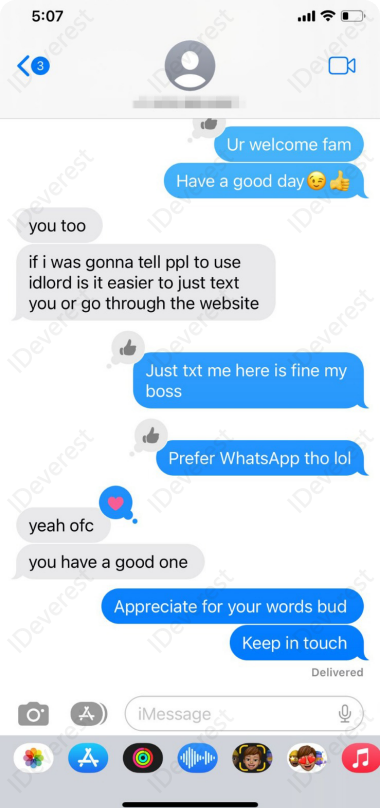 US PR
US PR
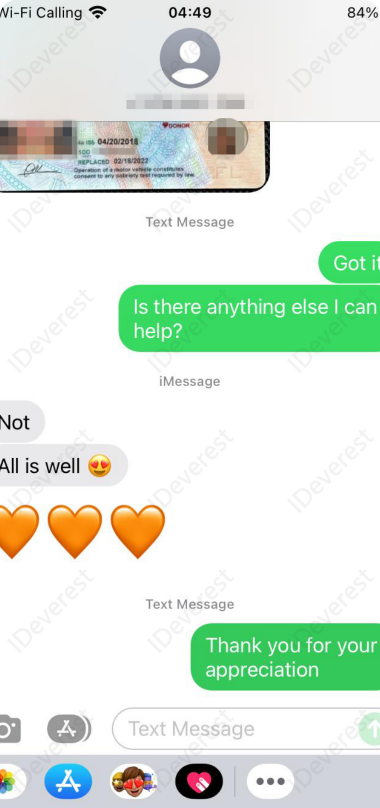 US Permanent Resident
US Permanent Resident
 US Lawful Permanent Resident
US Lawful Permanent Resident
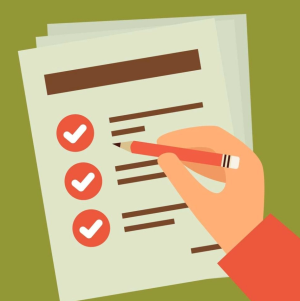 US Permanent Resident Card
US Permanent Resident Card